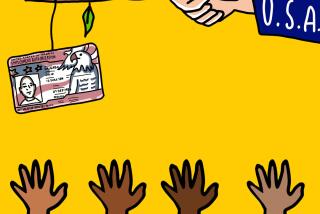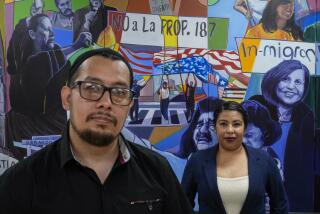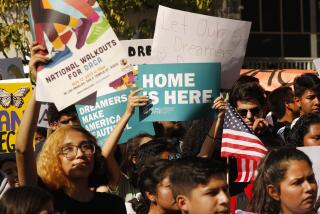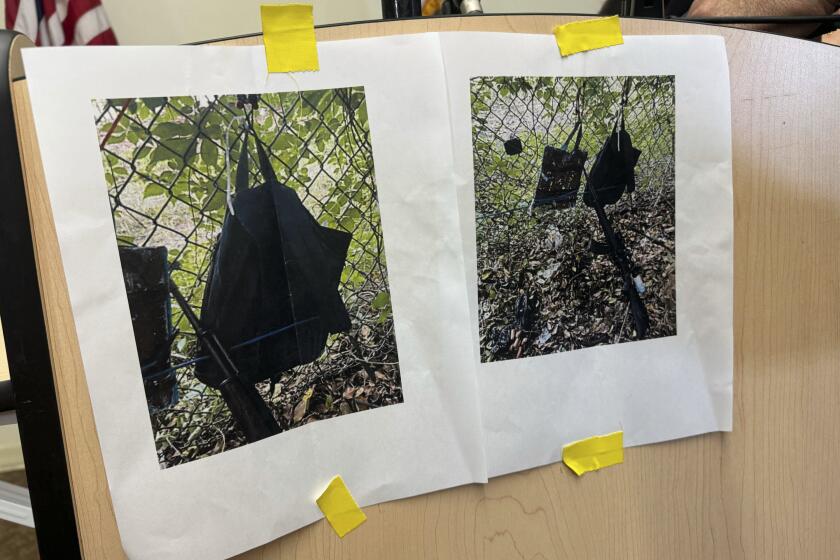Op-Ed: I’m a DACA student and I’m praying ICE won’t pick up my parents
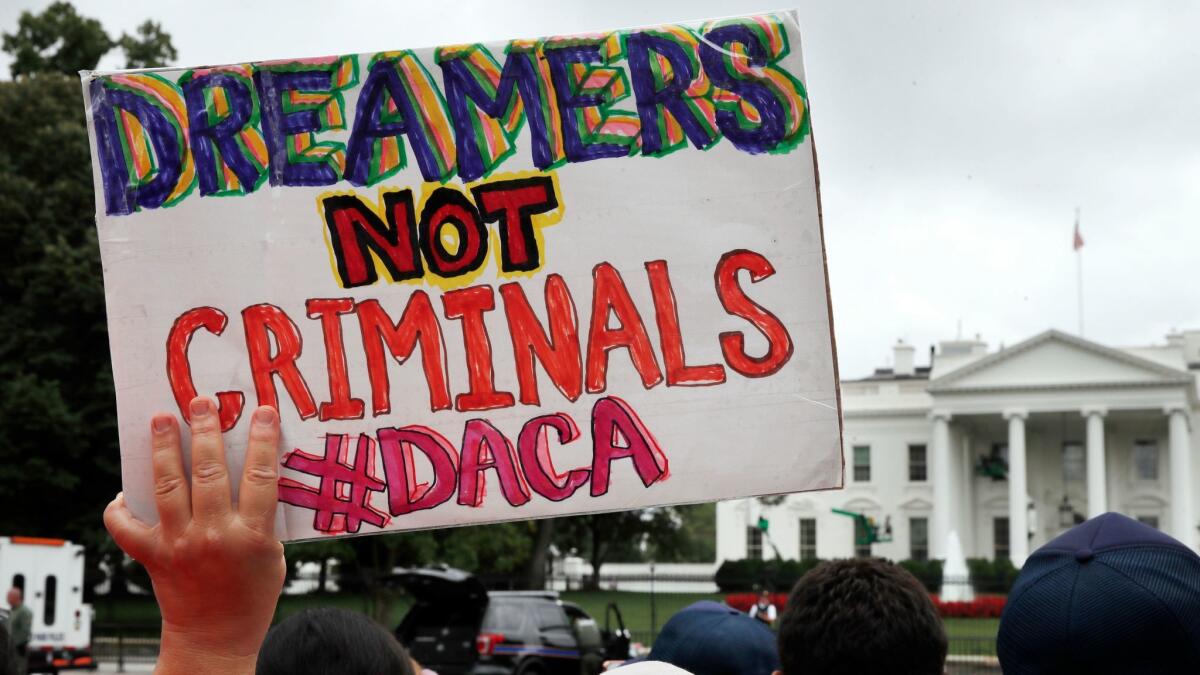
When Gordon Ip said goodbye to his parents this month and returned to the University of Nebraska Omaha for the fall semester, he knew it might be a very long time before he saw his mother and father again. They could be detained and even deported to Hong Kong at any moment. The Ips have lived in Southern California for 18 years, but none of them has a valid visa, permanent green card or citizenship papers. For now, Ip is secure; he was 4 years old when the family arrived in the U.S., and the Obama administration granted him temporary protection under DACA, the Deferred Action for Childhood Arrivals program. But President Trump has made no promises about Ip and his fellow Dreamers, and his executive orders make it clear that Ip’s parents — a nail salon worker and a construction worker — are at risk. Ip, 22, spoke to Daniela Gerson by phone from his family’s home in Alhambra.
All I feel is fear. I worry about my parents being ripped away from me. I worry about succeeding, and them not being here to see their hard work pay off.
We came up with a back-up plan if they get deported. “Finish your education here,” they told me. “Otherwise, what did we do all of this for? What did we sacrifice all these years for?”
People never suspect me of having immigration problems. “OK, so why do you want to know about DACA?” people ask when I show up at a know-your-rights meeting or the financial aid office. I don’t blame them. I didn’t suspect either.
All I feel is fear. I worry about my parents being ripped away from me.
I was 17 and applying to colleges when I told my parents at dinner one night that I needed my Social Security number. My mother, father and brother stared down at their rice bowls. All I could hear was the click of chopsticks on porcelain.
I don’t understand everything my parents say in Cantonese, and they don’t understand everything I say in English. It was my older brother who eventually explained to me that we aren’t legal immigrants. I finally understood why he ended up at community college, and why we had never visited the rest of our family in China or Hong Kong.
How was it possible that I could not have known? I’d been watching news stories about immigrants for years. But the debate was always about the Mexican-American border.
I did not know stories like my parents’ existed. My father saved for more than 15 years to move to America. But once we landed in L.A., legal advisors scammed him. We were left with basically nothing, and because we overstayed our tourist visas we were ineligible to become legal residents.
Two days after I graduated high school I got DACA status. My father greeted me when I came home, his eyes glowing with joy like I’d never seen before. “Our struggles are over,” he told me. “We’ve finally made it in America.”
My parents’ status stayed the same, but DACA changed my life and my brother’s. I received a state scholarship to UNO. I’m on the speech and debate team, and to know that I can cross state boundaries without fear of deportation relieves so much stress. My brother graduated from Cal State Long Beach, and right away got a job in graphic design.
I never thought Trump could win. And then I heard our new president saying, “We’re going to start deporting you now. We’re going to find you.”
For a few months after the election, I was just praying.
As I traveled with the speech team, I got to know another side of America. I saw Confederate flags. Someone called my African American coach “boy.” Even in the blue-dot city of Omaha, I felt a change. Someone called to me, “Learn to drive, you chink.”
When I came home to Alhambra it was a relief, but I also noticed a Trump sign on my street. How can you live in a community that is so ethnically diverse, and still support someone who wants to kick us out?
My friends here think Trump is a joke, but they have sort of accepted that he is president. They can do that. They are mostly children of Chinese and Vietnamese immigrants, or Latino. They’re all citizens. Some of them know that my situation is a little different, but I don’t think any know that I could be kicked out of the country.
My solace has been ethnic food. When I enter a Hong Kong café on Valley Boulevard or a taco stand on Cesar Chavez, nobody wants to talk about immigration or politics. I look at the guy next to me going in on a shrimp cocktail, and I’m eating like eight fish tacos, and I realize we just need to take this one moment away from the news. That’s solidarity.
My whole family understands that we have to spend every waking moment appreciative of each other. We talk about drama happening at my mom’s nail shop. We talk about what my dad learned watching YouTube videos about Chinese history. We eat my favorite sweet-and-sour pork ribs that my mom taught me this summer how to make. Just being able to sit with my family — that’s what I’m going to be craving in Nebraska.
Gordon Ip is majoring in communication studies at the University of Nebraska. Daniela Gerson is an assistant professor of journalism at CalState Northridge and a senior fellow at the Democracy Fund. She is co-founder of the immigration newsletter Migratory Notes.
Follow the Opinion section on Twitter @latimesopinionand Facebook
More to Read
A cure for the common opinion
Get thought-provoking perspectives with our weekly newsletter.
You may occasionally receive promotional content from the Los Angeles Times.
